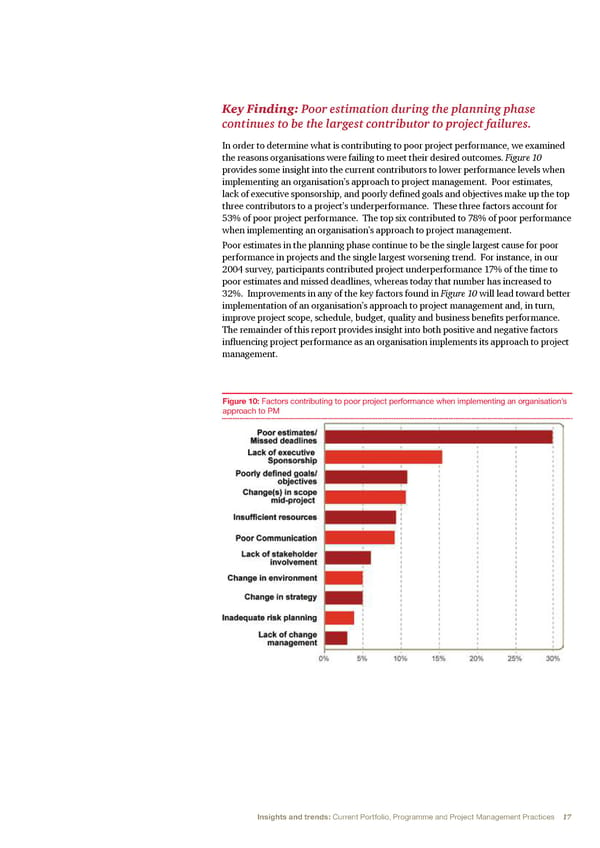Key Finding: Poor estimation during the planning phase continues to be the largest contributor to project failures. In order to determine what is contributing to poor project performance, we examined the reasons organisations were failing to meet their desired outcomes. Figure 10 provides some insight into the current contributors to lower performance levels when implementing an organisation’s approach to project management. Poor estimates, lack of executive sponsorship, and poorly defined goals and objectives make up the top three contributors to a project’s underperformance. These three factors account for 53% of poor project performance. The top six contributed to 78% of poor performance when implementing an organisation’s approach to project management. Poor estimates in the planning phase continue to be the single largest cause for poor performance in projects and the single largest worsening trend. For instance, in our 2004 survey, participants contributed project underperformance 17% of the time to poor estimates and missed deadlines, whereas today that number has increased to 32%. Improvements in any of the key factors found in Figure 10 will lead toward better implementation of an organisation’s approach to project management and, in turn, improve project scope, schedule, budget, quality and business benefits performance. The remainder of this report provides insight into both positive and negative factors influencing project performance as an organisation implements its approach to project management. Figure 10: Factors contributing to poor project performance when implementing an organisation’s approach to PM Insights and trends: Current Portfolio, Programme and Project Management Practices 17
 Insights and Trends Page 17 Page 19
Insights and Trends Page 17 Page 19